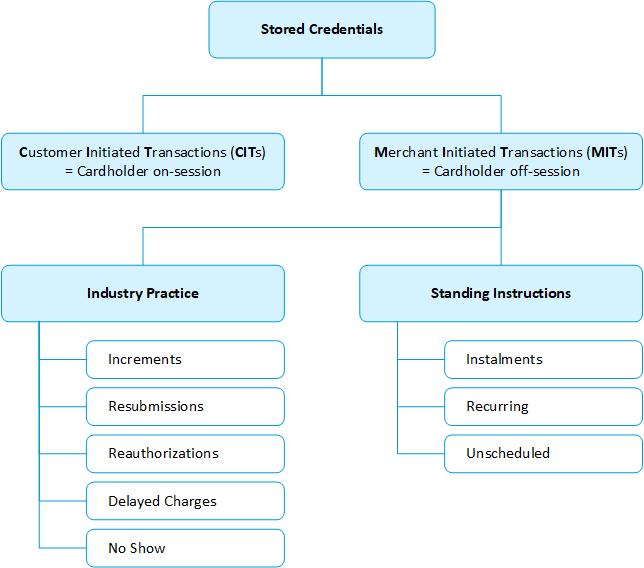Whenever card credentials (i.e. cardholder name, card number/token and/or expiry date) are stored for future use a prior consent by the cardholder is required. During the establishment of such a mandate the cardholder should be informed about the exact reason for storage of the credentials with the merchant. That means an authorization request that establishes a mandate for stored credentials also must indicate the kind of potential subsequent transactions. These subsequent transactions with a stored payment credential that the cardholder has consented to are broadly categorized into Customer Initiated Transactions (CITs) and Merchant Initiated Transactions (MITs).
There are various use cases for MITs that can be generally categorized into transactions following a certain Industry Practice and Standing Instructions. In
Please note that with each initial CIT that establishes a mandate for subsequent MITs you will receive a Once SCA becomes mandatory on September 14, 2019 existing MITs covered by cardholder agreements can continue to be processed without a |
Cardholder Initiated Transaction (CIT) Merchant Initiated Transaction (MIT) |
